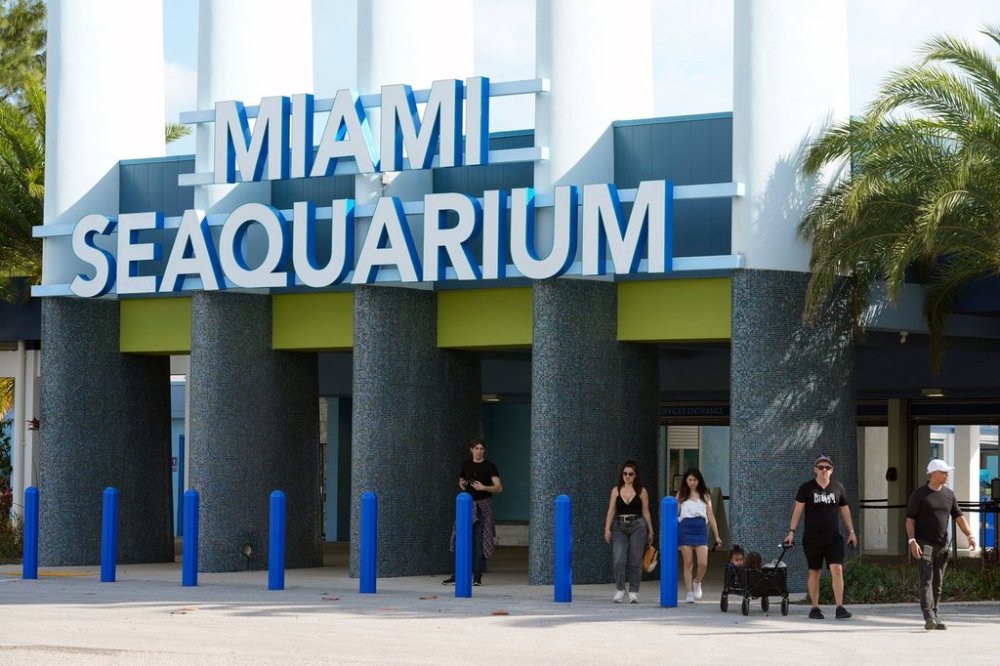The cherished and controversial Miami Seaquarium closes its doors
Advertisement
Read this article for free:
or
Already have an account? Log in here »
To continue reading, please subscribe:
Monthly Digital Subscription
$1 per week for 24 weeks*
- Enjoy unlimited reading on winnipegfreepress.com
- Read the E-Edition, our digital replica newspaper
- Access News Break, our award-winning app
- Play interactive puzzles
*Billed as $4.00 plus GST every four weeks. After 24 weeks, price increases to the regular rate of $19.00 plus GST every four weeks. Offer available to new and qualified returning subscribers only. Cancel any time.
Monthly Digital Subscription
$4.75/week*
- Enjoy unlimited reading on winnipegfreepress.com
- Read the E-Edition, our digital replica newspaper
- Access News Break, our award-winning app
- Play interactive puzzles
*Billed as $19 plus GST every four weeks. Cancel any time.
To continue reading, please subscribe:
Add Free Press access to your Brandon Sun subscription for only an additional
$1 for the first 4 weeks*
*Your next subscription payment will increase by $1.00 and you will be charged $16.99 plus GST for four weeks. After four weeks, your payment will increase to $23.99 plus GST every four weeks.
Read unlimited articles for free today:
or
Already have an account? Log in here »
MIAMI (AP) — The Miami Seaquarium, an old-Florida style tourist attraction that gained international attention as the filming location for the 1960s television series “Flipper” and thrilled generations of tourists with trained dolphin and orca shows, has closed its doors.
Sunday’s closure of the park that opened in 1955 was celebrated by animal rights activists who had lobbied for decades to free the marine mammals inside. Located across a causeway from downtown Miami and overlooking Biscayne Bay, the park was beloved by those who grew up visiting the landmark, but plagued by persistent animal welfare complaints.
Last year, the aquarium’s parent company received an eviction notice for the waterfront property it leases from Miami-Dade County. Local cited a “long and troubling history of violations.” The action followed a series of federal inspections that found multiple problems, including unsafe and structurally deficient buildings.

For years, families hoping to make cherished memories at the attraction have had to weave around the animal rights protestors stationed on the sidewalk outside, equipped with signs, bullhorns, rosary beads and incense.
In recent years, activists focused on the fate of Lolita, an orca whale held captive in a shallow pool for more than a half-century. She died just as caregivers were preparing to move her to a natural sea pen in the Pacific Northwest.
Efforts to redevelop the Seaquarium site are already in the works, with plans for a new “accredited aquarium” with no marine mammals, as well as a research center, shops, restaurants and a publicly accessible baywalk.

